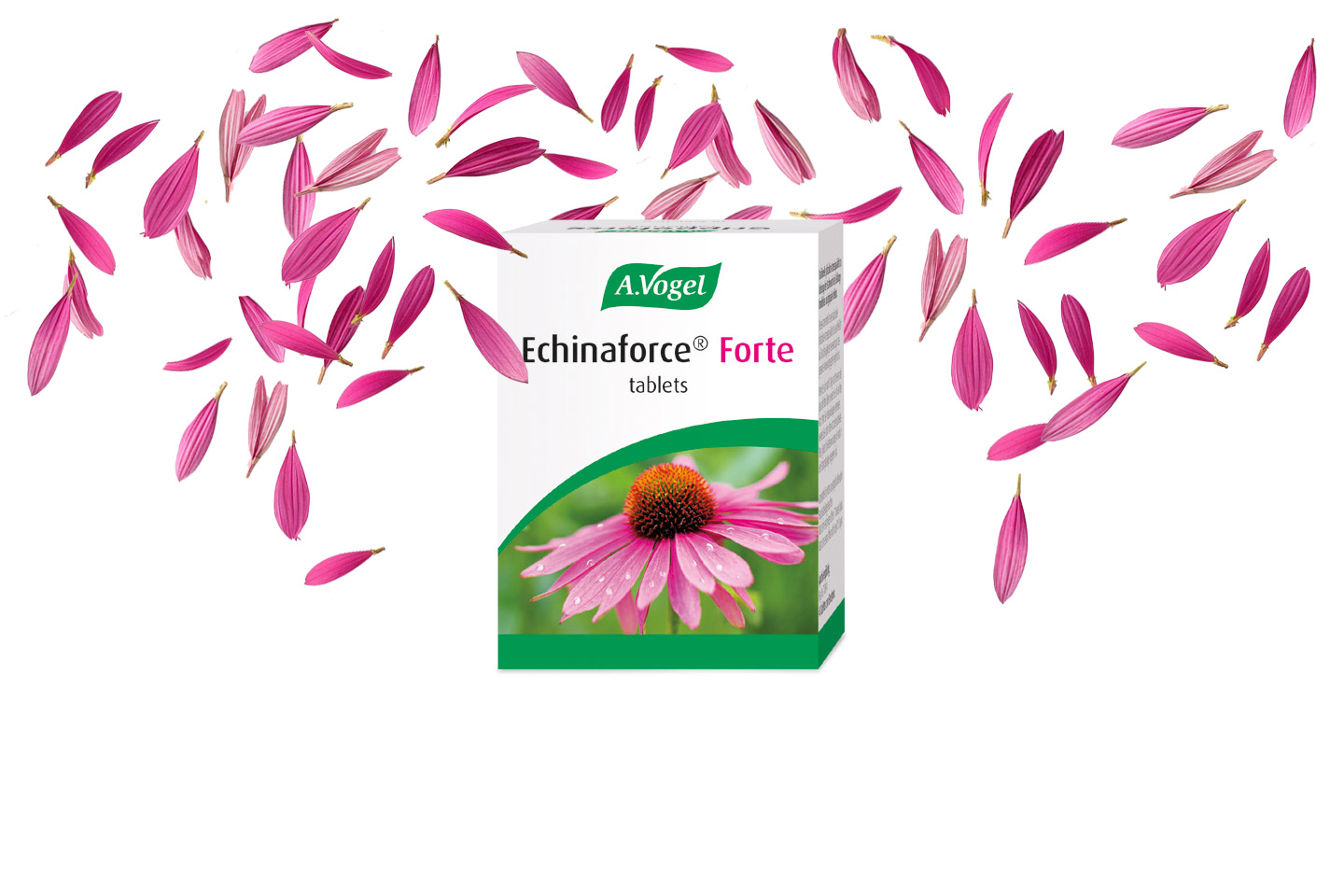Latest news from A.Vogel
Stay updated with the latest news and developments from A.Vogel. Here, you will find information about our product launches, company initiatives, and participation in health and wellness events.
70 Years of Echinaforce: A Milestone in Natural Health
In 2025, we celebrate the 70th anniversary of Echinaforce, our trusted remedy made from freshly harvested Echinacea.
Explore moreA.Vogel Museum: A Journey into the World of Medicinal Plants
In 2024, we opened the A.Vogel Museum in Teufen AR (Switzerland), offering visitors an interactive and sensory experience.
Explore moreAround one million francs for research and development
In 2023, A.Vogel celebrates its 100th anniversary on the market. It is a good opportunity to refresh the brand and focus on an important new aspect: scientific rigor.
Explore moreA.Vogel among the 20 most innovative brands in Switzerland
The health brand from Eastern Switzerland is celebrating a special 100-year anniversary and still enjoys a high level of trust from customers today. This is demonstrated by the fact that A.Vogel once again performed well in the prestigious Promarca ‘Brand of the Year’ awards.
Explore more100 years of A.Vogel - passion for fresh plants and scientificity
Over the past 100 years, A.Vogel has evolved from Alfred Vogel's small health food store in Basel into a global leader in fresh plant-based remedies, exporting to over 20 countries.
Explore moreBioforce AG to be renamed A.Vogel AG as of 1st January 2020
3rd January 2020 - Bioforce AG in Roggwil TG was founded in 1963 by the natural medicine pioneer Alfred Vogel (1902 – 1996). The successful Thurgau-based company will be called A.Vogel AG as of 2020. The new name A.Vogel AG is not only a reference to the company founder, but also guarantees the identity of the brand and company name.
Explore more




